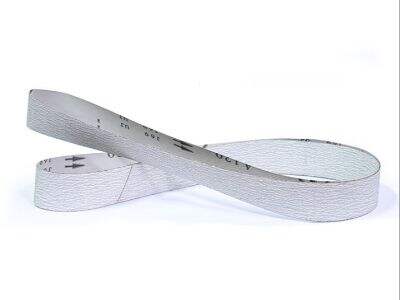Is gníomh é an oibre-léinn atá fíorfhocalach, cruthaíonn rud ár ndícheall le cabhrú le léinn. Tá sé iontach agus tabharfaidh sé duit mórán saorchoicís. Is féidir le duine ar bith oibre-léinn a dhéanamh, faightear na páistí óga agus na daoine fada chun maith a fhoghlaim. Ach ar an gcéad amhras freisin, tá oibre le léinn fíor-dhifriúil agus is bródúil go bhfuil sí. Is mó an obair difriúla é an léinn glanadh don fheabhsú deireanach. Tar isteach materiale Géagach le Aimchamp , an t-inbhe chunaithe a laghdú ar phain saothair gheimhridh agus a mhéadú i gcás oibre. Ligíonn beal smeachta duit cur béim fíne ar do phriontáil.
Cén Fáth na Bealaí Smeachta?
Boghaí sanding — tá seo mar chuid den bhforbróir speisialta don eileamh faoi scáth chun go mbeidh an fáithiúnas plánach. Tá sé mar thoradh sólra, céanna le hábhar spéire síneadh, agus bíonn sé ar chóras atá againn arís agus arís mar 'smeachta síneadh'. Is iontach an rudaí é mar a théann an mála smeachta seo ar aghaidh go hard. Mar sin is luath agus is eficiúint an phróiseas seo Fheabhróg Smarál chun an coitseál a chur isteach go tapa agus a chur níos éasca ar do phroject.
Faigh tú béim níos fearr ar do phroject saothair gheimhridh nuair a úsáideann tú mála smeachta. Úsáidtear smeachta síneadh le mála smeachta chun an fáithiúnas gheimhridh a ghlanadh agus aon smól nó crainn géar a bhaint. Mar sin nuair a shmeachtaíonn tú é deireanach, is glan agus is déanta é nuair a theastaíonn uait é a phainitéar nó an gheimhreadh a fhágáil mar atá sé.
Conas a Dhéantar Bealaí Smeachta?
Tá beart smeachta ar dhá láir difriúla. An chéad dul síos is é an phlean a shmeachann na héadrom. An dara céim is é sin gheallan adhésiu speisialta a choinníonn an t-éadrom crua ceangailte le do chosa. An cheann deochaidh — go háirithe agus bríomhar, cosúil le stailc nó rubaer chun tacú leis an bearta do sheamóir agus cabhróidh le beart fós.
Is ó réimsí éagsúla a thagann na hoibrithe gnéithe i n-bearta smeachta. I gcinsíonn sé seo cásanna poiblí ar nós oksa idimear, carbaid sílicin nó zirconia alúmina. Tá gnéithe ainmneacha againn a chloíonn siad mar shampla don obair éadrom a dhéanamh. Beidh sé an-bhéil agat agus bíodh roghaíocht chun tuiscint níos fearr ná cúnamh.
Bearta Smeachta: Céard atá á bhfeabhsú anseo?
Is féidir leat Bréagáin Súgálaíochta a úsáid don ghné ar bith de phróiseáid leabharlann. Is minic a n-úsáidear i gcónaí san tuairisc eolais um fheabhsú chathaoir, táblaí agus cáisíní. Nuair a n-úsáideann tú é, is criticiúil é a chur orthu ar chathaoir, táblaí agus cáisíní chun críoch shonrach a bhaint amach. Mar sin, más maith leat go mbeidh aiceál sanding belts agat agus tá bród ort faoi ghlas acu ag an gcórn, ní hé rogha dona ídeacha feabhsuithe DIY le bréagán súgálaíochta. Mar shampla, nuair a bhfuil tú ag obair ar dlúithe nó ráiteasc pictiúr fiáin nó teachtrai éan.
Is féidir leat na bréagáin súgálaíochta a úsáid freisin do pháipéar dhubh nó do pháipéar dúnta. Tógtear seo ó pháipéar dúnta mar díos nó atá an-mhór; nó páipéar láimhe mar phíne atá lomrúnda agus éasca le h-obair leo. Tabhair faoi deara go bhfuil na bréagáin súgálaíochta fosta in ann a bheith á úsáid ar a mhatérial cothromaithe MDF (Meán-Déansúnachta Phainéal), agus pluaibóid. Mar sin is é an beart is fearr chun an fhiúcháil dheireanach a fháil ar aon pháipéar atá agat ag obair leis.
Cén Fáth N-Úsáid Bréagáin Súgálaíochta?
Na mionphobailtaí móra de bháilte saoradh i gcás oibre leabharlann. Ar dtús, tugann siad críochna smúitigh uafásach do phainitéar nó do bhrathadh/branú. Má thagann tú isteach ar gur féidir leat do phroject a chur chun cinn ag feiceáil bródúil agus prifhealsúnach, is é sin an tábhacht is mó. Mar sin féin, is féidir a úsáid chun an téacs mícheart nó scéalaithe faoi láthair na n-úllmhacha a bhaint amach agus mar sin is maith sanding belts don eiseamláire oibre. Tugann sé slánúchán, mar sin nach mbeidh aon gcuartaí ar do lámha le cur amach.
Sanding Belt - Is í an-bhuanna is mó ó úsáid sanding belt, go bhfuil sé in ann am agus níos mó a shábháil. Sin a ráthaíonn, is dóigh go bhfuil an obair saoradh de láimh fada agus lassúil níos mó; bíonn sé níos mó ná sin againn má tá ceangal mór a dhéanamh. Ligíonn sanding belt duit fáilt mhéid éasca a bhaint as an fho-thiomantas den chuid léithe den fhearán, a chiallaíonn go bhfuil am agus fuinneamh beaga níos mó. Ciallaíonn sin am níos mó ag úsáid pláinse leabharlann agus am beag níos mó ar obair.
Ag foghlaim faoi Sanding Belts
Trí thuiscint a fháil cén chaoi a oibríonn na bailte saoradh , beidh tú in ann roghaíocht ar an gcuibhreán glanála ceart do dheidhín. Is féidir le gach níos faide feabhsuithe a bheith cinnte nó neamhchomhlíonta don obair ábhar i gcás na foirgneamh drúcht.
Tosaíoch agus coitianta ínár fhoirm glanálacha é alúinm óxaid, atá oiriúnach don ghnás-sandáil. Ciallaíonn sé go mbeadh sé oiriúnach ar fhoirmeanna éagsúla drúcht agus ionannscoileanna. An-bhuanaíocht úsáide. Gach. Néad: is níos crua ach níos brógaíoch silicon carbide. Mór don chuid níos faide hardwoads, dair agus crainn mapa nó cén t-úsáid eile a thugann beagán níos mó chun é a bhaint amach slán. Is lena n-ábhar níos cruaidh agus níos láidre zirconia alumina atá ag úsáidtear i dtreo na foirgnimh drúcht; is féidir leis freisin a bheith oiriúnach don tsandáil ar fhoirgnimh glan níos cruaí cosúil le méad agus céanna.

 EN
EN
 AR
AR BG
BG HR
HR CS
CS DA
DA NL
NL FI
FI FR
FR DE
DE EL
EL HI
HI IT
IT JA
JA KO
KO NO
NO PL
PL PT
PT RO
RO RU
RU ES
ES SV
SV TL
TL IW
IW ID
ID SR
SR ET
ET MT
MT TH
TH TR
TR FA
FA AF
AF MS
MS GA
GA CY
CY MK
MK EU
EU KA
KA LA
LA NE
NE